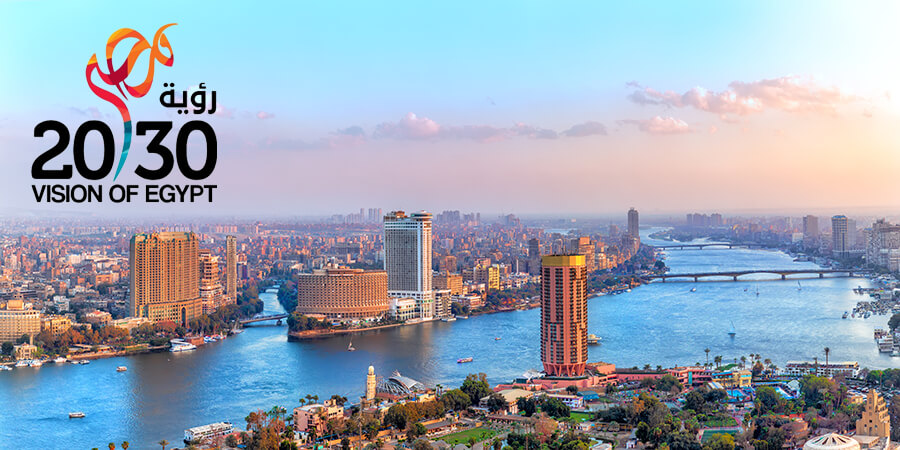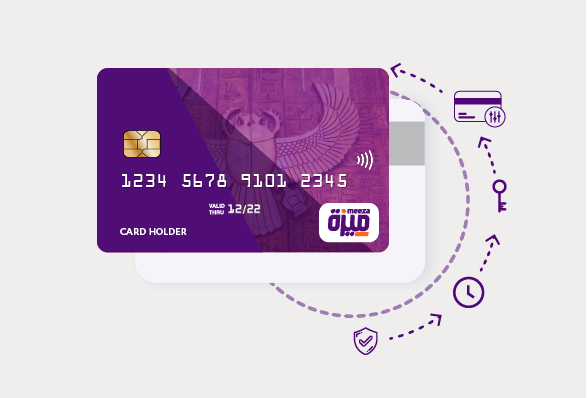Egypt’s digital transformation under the ICT 2030 Strategy

Egypt 2030 Vision | Source: Telecom Review Africa
In 2016, President Abdel Fattah El Sisi exhibited tremendous support for Sustainable Development Strategy: Egypt Vision 2030. Since then, Egypt has undergone a major digital transition to modernize its economy, improve public services, and boost digital literacy. To attain such goals, the country has invested heavily in education, research, and technical infrastructure. This article will analyze Egypt’s recent technological developments across three main pillars.
- Infrastructure development
The Egyptian government has invested considerably in the development of its digital infrastructure to provide reliable and high-speed internet connectivity across the country, such as expanding its fiber optic network to connect more households and businesses to the internet. As of 2020, more than 70% of the country’s population had access to the internet. Egypt has allocated more than $1.1 billion for the development of 5G technology and infrastructure. Adopting new technologies, such as 5G, will provide faster internet speed and improve connectivity across the country.
- E-government services
According to the ICT 2030 strategy, Egypt has made significant progress in digitizing its government services, which has made it easier for citizens to access essential services online. In 2020, the Egyptian E-Government Services Portal was launched, providing a one-stop-shop for government services such as applying for passports and IDs. The portal offers more than 100 services, and as of 2021, more than 6 million citizens have registered for the service.
- Financial inclusion & e-commerce
Meeza card, a national electronic payment card launched in 2019, allows citizens to receive their salaries, pensions, and other government payments electronically.
Egypt’s digital transformation has paved the way for private companies to launch several mobile payment applications, such as Fawry, Instapay, and Vodafone Cash, allowing citizens to pay bills, transfer money, and make purchases using their mobile phones.

Figure 2. Meeza Card | Source: Meeza-EG
The following explains why Egypt’s case should serve as a model based on two main motives:
Economic growth
The digital sector has been one of the fastest-growing sectors in Egypt, contributing significantly to the country’s GDP. According to a report by the governmental statistics, the ICT sector contributed 5% to Egypt’s GDP in 2021, and digital exports reached $4.9 billion by 2022.
Financial inclusion
The digitization of financial services has increased financial inclusion among Egyptians. According to a report by the MCIT, 56% of Egyptian adults have a bank account. Moreover, the money wallet accounts are expected to reach 57.9 million in 2025, which is higher than the average for countries in the Middle East and North Africa. In conclusion, Egypt’s digital transformation has advanced due to government investments in infrastructure, education, and innovation.
Digitizing government services, increasing digital literacy, and the government is pursuing digital transformation to meet its long-term aims. Last but not least, a valuable resource for those seeking to enhance their knowledge and skills in strategy planning is The KPI Institute’s Certified Strategy and Business Planning Professional course. It is recommended to sign up for this course to learn more about strategy planning.

